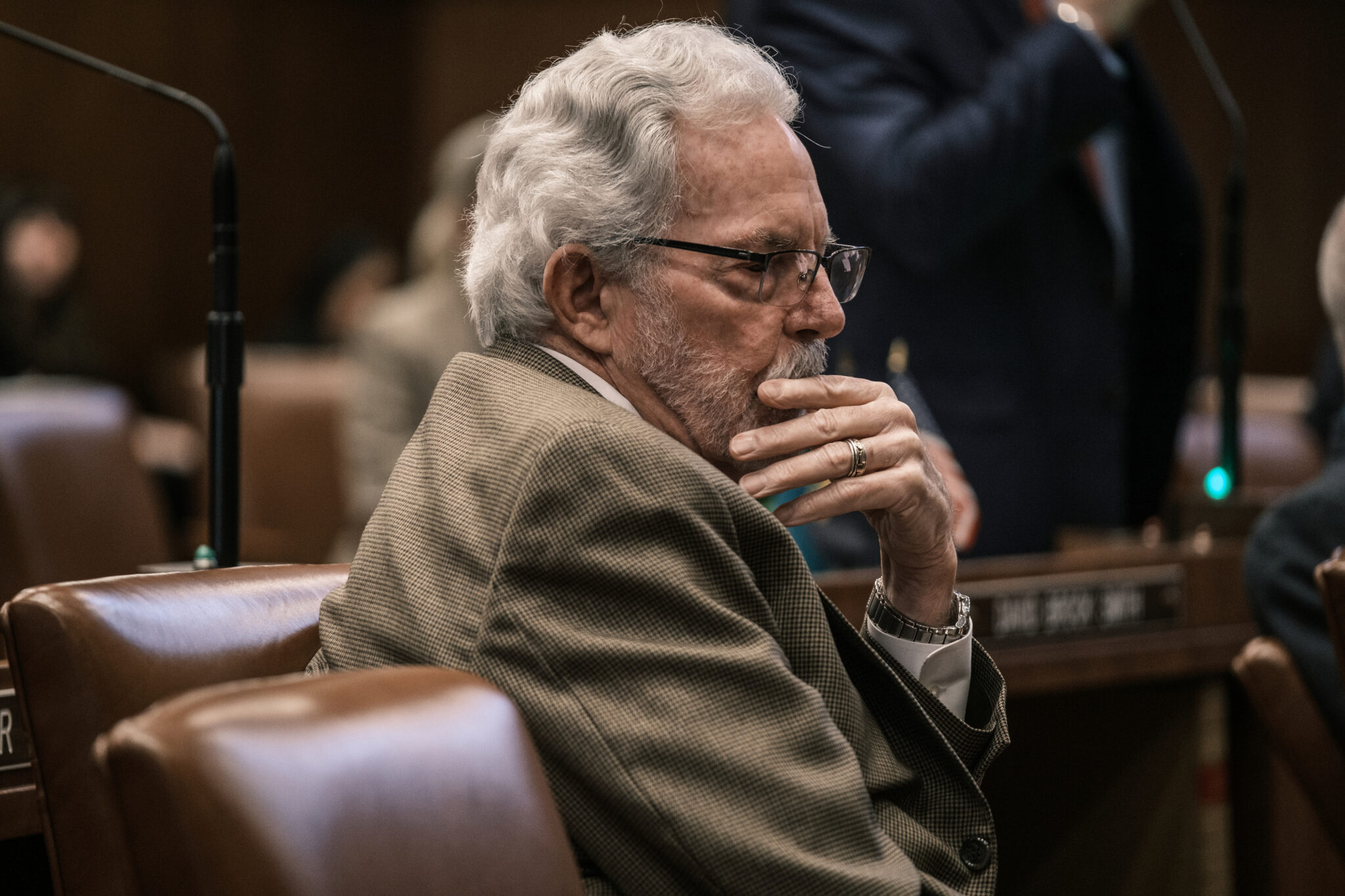
By LYNNE TERRY/Oregon Capital Chronicle
A Republican state senator who represents part of the Oregon coast that relies heavily on a tourist economy has submitted a plan to exclude state taxes on tips.
Sen. Dick Anderson of Lincoln City said in a news release that his “No Tax on Tips” proposal is designed to offer tax relief to people working in the service industry who are increasingly squeezed by rising inflation and “poor economic policies.”
“With high costs crushing Oregon workers, it’s more important than ever to support policies that put money back in the pockets of those who need it most,” Anderson said in a release. “Service industry employees rely on tips as a significant part of their income, and taxing these earnings only exacerbates the financial strain they face …”
Under Oregon law, employers must staff at least the minimum wage, regardless of whether they receive tips or not. Many other states allow tips to be counted as wages.
His proposal follows calls by former President Donald Trump in his Republican presidential bid to exclude taxes on tips. Under his plan, tips collected by restaurant workers, barbers, caddies, movers, drivers and others would not be taxed on their tips. The Democratic nominee, Vice President Kamala Harris, has a plan as well that would exclude taxes on tips for hospitality and service workers. It’s unclear what Anderson is proposing. He did not respond to a request for more information and did not release his proposal. Legislative staff said it will remain confidential until it’s formally filed.
Anderson is seeking re-election to a four-year term from Senate District 5 in the Nov. 5 general election. He is being challenged by Florence city councilor Jo Beaudreau.
In his release, Anderson said the proposal stems from his recent town halls in the Senate district, which stretches from Lincoln City to Coos Bay. He said service workers, including waitstaff, bartenders and others who receive tips consider them to be a crucial part of their earnings. But taxes on them reduce their take-home pay, adding to their financial pressures, he said.
“I recently toured my entire district with over 20 town halls and I heard loud and clear that Oregonians are struggling to make ends meet in today’s economic climate,” Anderson said. “This bill is a direct response to those concerns and a step toward easing the burden on our service workers. I’m committed to working with my colleagues in the Legislature to ensure this bill passes.”
It’s unclear what impact his proposal would have on state revenues or whether he could get it passed. Rep. Nancy Nathanson and Sen. Mark Meek, both Democrats and respective chairs of the House Committee on Revenue and Senate Committee on Finance and Revenue, said in a statement that they will work to lower costs for Oregonians in the upcoming session. But they said much depends on the details.
“As with all policies, the devil is in the details. We are committed to advancing policies that support hardworking Oregonians and uplift the middle class,” they said. “We are concerned about the unintended consequences of a broad policy, including some of what is being discussed at the federal level. For example, how do you define a tip versus wages, and who does this apply to?”
Lawmakers have until Dec. 13 to file bills for the next session, which starts Jan. 21.
- Oregon Capital Chronicle is a nonprofit Salem-based news service that focuses its reporting on Oregon state government, politics and policy.




These proposals really don’t make a lot of sense. If you don’t keep track of and tax the tips, what about social security tax? If that isn’t deducted, then these workers will get much lower Social Security payments when they retire. And what about federal tax? Does it make much sense to not tax tips under state income tax when federal law still requires them to be taxed? Or is everybody just going to turn a blind eye to widespread misreporting of income? And won’t that just lead to even less compliance with the tax system?
Moreover, we need to address/know more information about the tips that are added via e-pay or paid through the business. At that point will the business be allowed to utilize the “no tax on tips”? I hear many establishments have different rules of distributing tips. Not every time does it go to the individual server.
I just want to say that I love living in Lincoln City and been here since 2013 and I am one lucky and grateful single taxpayer to have a good job in this town because there isn’t many. But seeing my retired parents as struggling homeowners who can’t afford to live here anymore and good luck trying to live on $45,000 a year if you can even find a rental property. It’s unfortunate that the unfair taxation on retirees and single filers with the inflation tax and income taxes are just outrageous and I don’t understand why people who aren’t married get penalized and taxed 22% and get no credit’s for taxes paid it’s not fair and won’t waste time to vote it doesn’t even matter both parties are equally horrible at this point.